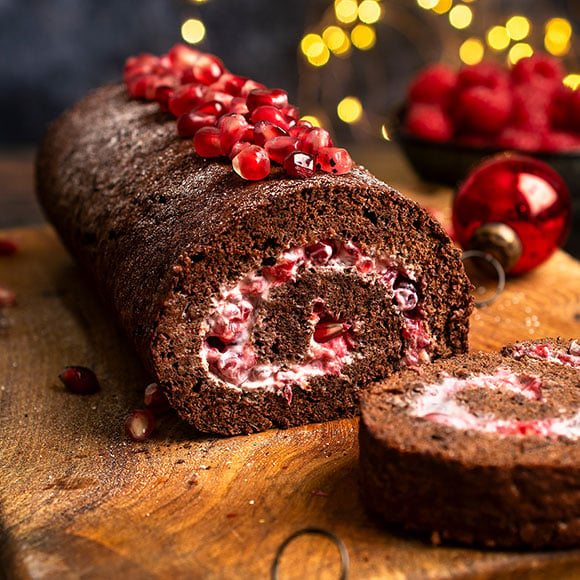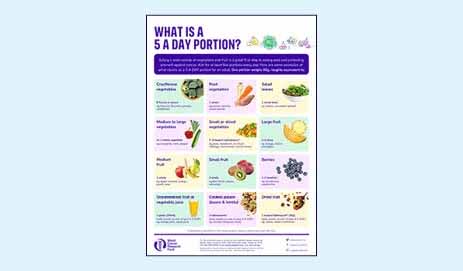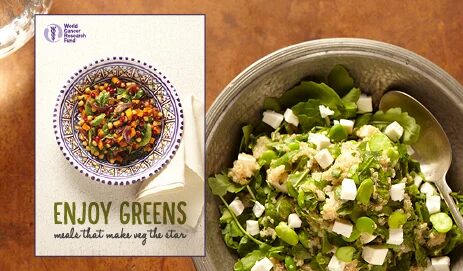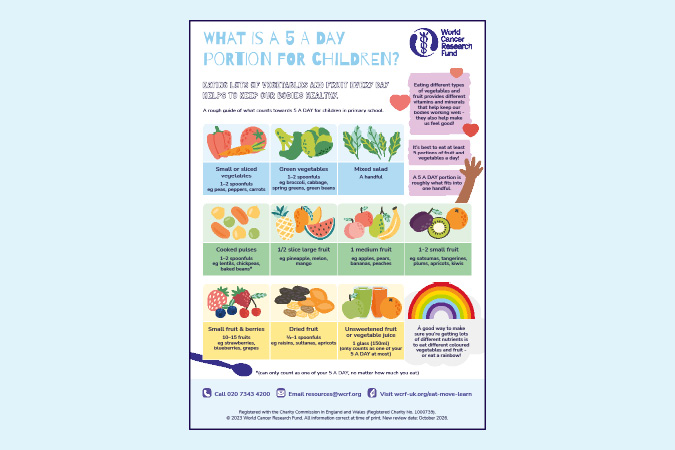Vegetarian and vegan diets, and cancer
Find out about following a vegetarian or vegan diet, and explore the evidence about whether vegetarian and vegan diets can help to prevent cancer.

On this page
A vegetarian diet is typically centred around plant-based foods like:
- fruit
- vegetables
- pulses (such as chickpeas)
- nuts
- seeds
It excludes meat, chicken and fish. However, some vegetarians eat dairy and eggs.
A vegan diet only includes plant-based foods and excludes any food or ingredients that come from animals, including meat, fish, dairy, eggs and honey.
Is a vegetarian or vegan diet better for my health?
Many people choose not to eat animal foods for different reasons. This may be because of animal rights or environmental reasons, but many people choose to make this change to be healthier.
For vegetarians and vegans, it’s important to find sources of protein, iron, calcium, iodine and vitamin B12 which are mainly found in higher amounts in animal foods.
However, following a vegan or vegetarian diet isn’t the only way to eat healthily. You can eat a predominately plant-based diet but still include a small amount of animal food such as dairy, eggs and lean meat – for example, poultry and fish – as part of a healthy, balanced diet.
> Download or order our cookbook Budget-friendly recipes: Good for you, good for the planet
It’s important to understand that excluding animal food from your diet doesn’t automatically make it healthier. Some people who follow a vegetarian or vegan diet still don’t eat enough fruit or vegetables. They may also eat a lot of processed foods such as crisps, biscuits, cakes and sweets, which can all be high in calories, fat, salt and sugar.
In fact, one of our Cancer Prevention Recommendations is to limit consumption of “fast foods” and other processed foods high in fat, starches or sugars.
What about plant-based meat alternatives?
Plant-based meat alternatives are designed to replicate the taste, texture and appearance of meat, milk and other dairy products but are made from plant-based foods including soya, peas, nuts, wheat, oats or from fungus, like mycoprotein.
Many of these meat alternatives are considered highly processed because they’ve undergone industrial processes and contain a variety of additives. Some of these products can also be high in saturated fat, sugar and salt. That’s why it is best to eat them less often and prioritise other minimally processed plant-based protein sources like pulses, nuts, seeds and soya products like tofu.
> Are plant-based meat alternatives better for us?
To make the healthier choice, compare the ingredients list and food labels of similar products and choose the product with fewer ingredients and lower amounts of fat, sugar and salt. In addition, choose options that are higher in fibre and fortified with important vitamins and minerals like iodine, iron, calcium and vitamin D.
> Free guide: Making sense of food and drinks labelling
What’s the science behind these diets and cancer?
There is no direct evidence that following a vegan or vegetarian diet reduces the risk of developing cancer.
However, many aspects of a healthy, balanced vegetarian and vegan diet align with our Cancer Prevention Recommendations. These include eating a variety of plant-based foods like wholegrains (like brown rice), pulses, fruit and vegetables, while limiting red meat and avoiding processed meats such as bacon and ham.
This is because plant-based foods are rich in fibre, and we have strong scientific evidence that eating high-fibre foods can reduce the risk of bowel cancer, as well as helping to reduce the risk of weight gain, overweight and obesity which can help protect against at least 13 types of cancer.
> Our factsheet explains more about fibre and how to get more in your diet
We also know that eating too much red meat and any amount of processed meat (such as bacon) increases the risk of bowel cancer. However, there is no evidence to suggest that eating white meat or fish increases the risk of cancer.
Resources for you
Written for you, by experts, our free resources can support you and your family on a journey towards better health.
Living with cancer
There is no evidence to suggest that following a vegetarian or vegan diet provides any advantages during cancer treatment compared with a diet that includes some animal foods.
However, if you are planning to make changes to your diet, you should always speak to your cancer care team first. This is to ensure that any changes you make provide your body with enough energy (calories), protein, vitamins and minerals to support your recovery.
Diet and Cancer Report
Our 2018 Diet and Cancer Report did not look specifically at vegetarian or vegan diets. However, it did loook at:
- wholegrains, vegetables and fruit
- body fatness and weight gain
It found strong evidence that:
- wholegrains DECREASE the risk of colorectal cancer
- foods containing dietary fibre DECREASE the risk of colorectal cancer
- foods containing dietary fibre DECREASES the risk of weight gain, overweight and obesity
> Read the relevant chapters in our Science and policy library






